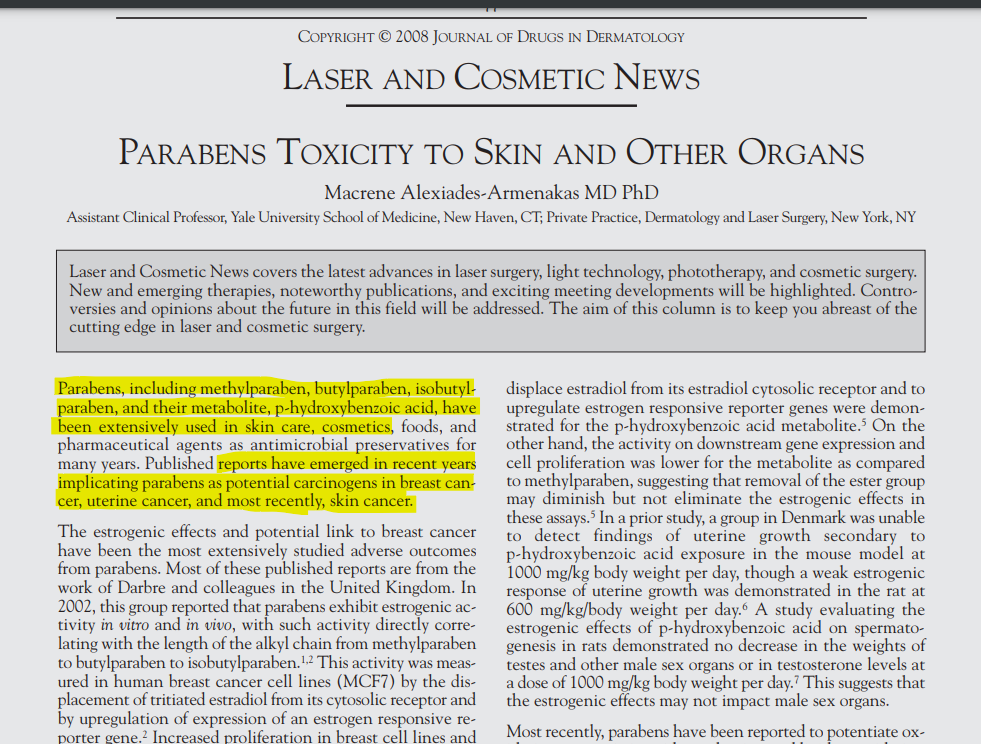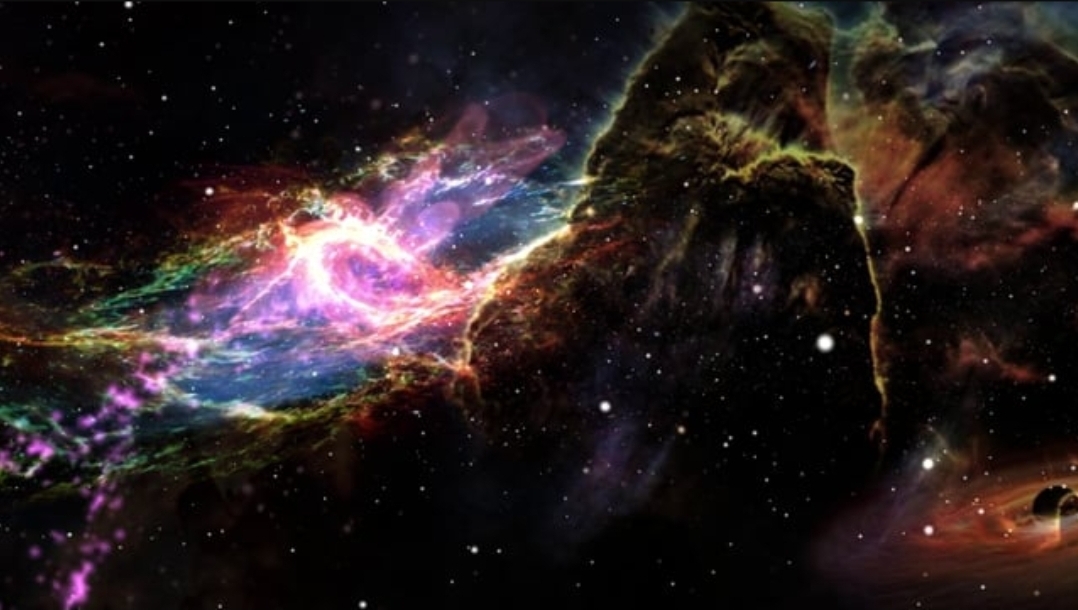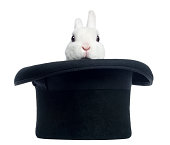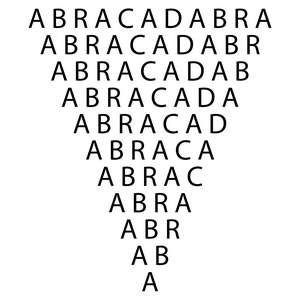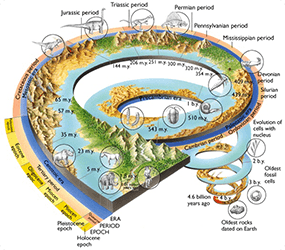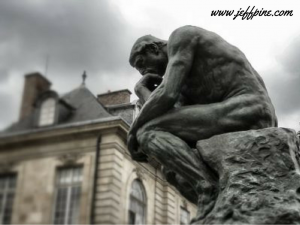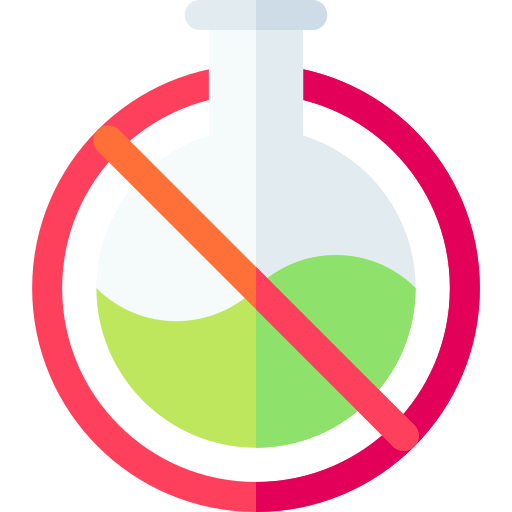
In our daily quest for personal hygiene, commercial deodorants have become a staple. However, beneath the pleasant scents and promises of long-lasting freshness, there lies a potential health concern. In this article, we’ll explore the dangers associated with synthetic fragrances, parabens, aluminium, and other chemicals commonly found in commercial deodorants. Let’s delve into peer-reviewed scientific studies that underscore the potential risks and urge a thoughtful reconsideration of our personal care choices.
1. Synthetic Fragrances: A Scented Intrigue
Background: Synthetic fragrances are ubiquitous in commercial deodorants, offering an array of scents to appeal to consumers. However, the term “fragrance” often conceals a complex mixture of chemicals.
Dangers: Many synthetic fragrances contain phthalates, known endocrine disruptors that can interfere with hormonal balance, contributing to reproductive issues and potential links to certain cancers.
- Phthalate Exposure Levels: A study published by the National Institutes of Health (NIH) states that ‘chronic exposure to phthalates will adversely influence the endocrine system and functioning of multiple organs, which has negative long-term impacts on the success of pregnancy, child growth and development, and reproductive systems in both young children and adolescents.’
- Hormonal Disruption Rates: Research in the NIH details the clinical aspects of endocrine disruption in humans.
2. Parabens: Preserving More Than Expected
Background: Parabens, common preservatives in deodorants, are known to extend shelf life. However, their ability to mimic estrogen in the body raises concerns.
Dangers: Parabens have been detected in breast tissue, prompting concerns about their potential role in breast cancer development due to hormonal imbalances.
- Paraben Concentrations in Breast Tissue: A study in the NIH explored the presence and levels of parabens in human breast tissue.
- Breast Cancer Incidence: Research in the NIH Epidemiology examined the correlation between paraben exposure and increased breast cancer rates.
3. Aluminium: From Antiperspirant to Health Concern
Background: Aluminium compounds are often used in commercial deodorants for their antiperspirant properties, blocking sweat ducts to reduce perspiration.
Dangers: Growing evidence links aluminium exposure to neurotoxicity, raising concerns about its potential role in Alzheimer’s disease. Additionally, its impact on breast tissue has sparked scientific inquiry.
- Aluminium in Brain Tissue: A study in the NIH investigated the presence and accumulation of aluminium in the brains of individuals with prolonged exposure.
- Breast Cancer Rates: Research in the Journal of Inorganic Biochemistry explored the correlation between long-term aluminium exposure and increased breast cancer incidence.
4. Chemical Cocktail: Unveiling the Unseen Risks
Background: Commercial deodorants often contain a plethora of synthetic chemicals, contributing to skin irritation, allergies, and potential respiratory issues.
Dangers: Cumulative exposure to this chemical cocktail raises concerns about long-term health effects, prompting a reevaluation of the products we apply daily.
- Skin Irritation Incidence: A study in the NIH evaluates exposure to scented products and explores associations between exposure and fragrance contact allergy.
- Respiratory Issues: Research in the NIH explored the incidence of respiratory problems and lung disease associated with prolonged exposure to deodorant chemicals.
Embrace a Chemical-Free Lifestyle
As we draw the curtain on this journey through the labyrinth of everyday products, armed with knowledge about the potential hazards lurking in our cabinets, it’s time to take charge. Your commitment to a healthier, chemical-free lifestyle begins with a simple step—staying informed.
By choosing to like, follow, share, and subscribe, you’re not just signing up for updates; you’re joining a community dedicated to dismantling the stronghold of harmful chemicals in our daily lives. Together, we can redefine our choices, one product at a time.
So, hit that like button to show your support, follow for a steady stream of insightful tips, share with friends and family to amplify the ripple effect, and subscribe to stay on the forefront of the chemical-free revolution. Let’s spread the word, share the wisdom, and build a future where our everyday products are as pure as our intentions.
Every click and share is a pledge towards a world where the beauty of our surroundings matches the healthiness of our choices. Your support fuels our mission to empower individuals like you with the knowledge to make informed decisions.
Thank you for joining us on this journey. Let’s embark on a future free from harmful chemicals together. Stay tuned for more tips, insights, and inspiration. Remember, the power to redefine our relationship with everyday products lies in your hands. Like, follow, share, and subscribe—because a healthier, chemical-free world begins with you!




